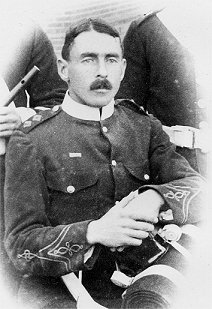| Other Info | When First World War broke out in 1914 Hovell was on the retired list, but he soon found himself in command of the 13th (Reserve) Battalion Worcestershire Regiment, formed at Plymouth in November 1914. He also quickly found himself in trouble. His behaviour became the source of rumour among the rank and file, two of whom complained about him. The Times’ account of the libel case, on 6th May 1920, reported that:
"Early in December, 1914, rumours were rife that private soldiers were making indecent suggestions about the conduct of the plaintiff, and these rumours continued. A court of inquiry was ordered, and of the two private soldiers who gave evidence one tried to commit suicide."
The President of the Court was Colonel Percy Holland. The conclusion of his report was as follows:
"The Court having most carefully considered the evidence brought before them are of opinion that although they do not consider there is any ground for specific charges such as suggested by the allegations made by Privates Fletcher and Baugh regarding Colonel Hovell, at the same time they are of opinion that Colonel Hovell is undoubtedly eccentric in his manner and methods in dealing with his men, and that these peculiarities of his in conjunction with the treatment rendered necessary to his back are liable to misconstruction."
As a result of the report, Hovell was removed from his command and returned to the retired list. He sought to retrieve his reputation and in 1915, at the age of 52, he enlisting secretly under an the assumed name of Hugh Nash (22162) as a private soldier in his old battalion (2nd Battalion Worcestershire Regiment). He joined the 2nd Battalion on the 18th May 1915, with a draft of men after the Battalion's night attack at Festubert, joining at the village of Les Harisoirs. He was posted to 'A' Company. He served with his ‘old comrades’ in France for five months until his health broke down.
In May 1920 Hovell’s claim that Colonel Percy Holland had libelled him in the report of the inquiry came to trial. Holland’s counsel, the Attorney-General, successfully argued that a Court of Inquiry was privileged and that Hovell had suffered no real harm, being stripped neither of his rank, nor his DSO, nor his pension. The judge found for the defendant with costs.
Lieutenant-Colonel Hugh De Berdt Hovell, D.S.O., died from broncho-pneumonia on the 27th November 1923, aged 60. |
|---|
